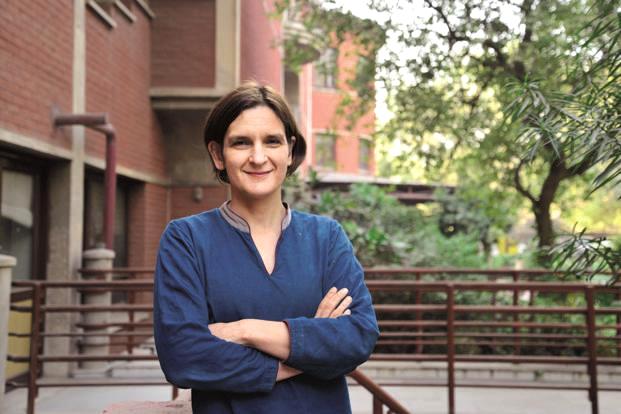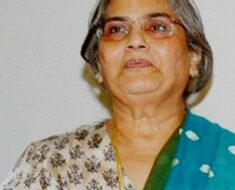Esther Duflo, a renowned French economist, achieved global recognition with her 2019 Nobel Prize in Economic Sciences. This post delves into her life, career, and significant contributions to the field.
Wiki/Biography
Born on Wednesday, November 25, 1972, in Paris, France, Esther Duflo’s zodiac sign is Scorpio. Her early education was at the Lycée Henri-IV in Paris. She later pursued a Maîtrise in History and Economics from the École Normale Supérieure, followed by a Master’s in Economics from DELTA College. Her academic journey culminated in a PhD in Economics from MIT in 1999, specializing in Social Economics and Development Economics. Her doctoral advisors were Abhijit Banerjee and Joshua Angrist; her thesis was titled “Essays in Empirical Development Economics”.
Physical Appearance
- Height (approx.): 5’5″
- Eye Colour: Black
- Hair Colour: Dark Brown
Family & Husband
Esther Duflo comes from an accomplished family. Her father, Michel Duflo, is a mathematician, and her mother, Violaine Duflo, is a pediatrician. Her sister, Annie Duflo, is also an economist. She married Abhijit Banerjee, an Indian-American economist, in 2015. The couple welcomed a child in 2012.
Career
Even during her PhD, Esther Duflo’s career took off. She spent ten months in Moscow teaching French and researching a history thesis on Soviet propaganda and its influence on construction projects. After completing her PhD, she joined MIT as an Assistant Professor in 1999, achieving tenure in 2001 and promotion to Associate Professor in 2002. She’s the founding editor of the American Economic Journal: Applied Economics. Her collaborative work with Abhijit Banerjee on Development Economics, utilizing field experiments, is groundbreaking. Their research significantly contributed to her Nobel Prize win in 2019, shared with Michael Kremer.
Duflo’s book, “Poor Economics,” published in 2011, gained international acclaim. Her research focuses on finding effective ways to fight global poverty. Her work has had a lasting impact on development economics and poverty alleviation strategies.
Books Authored
Esther Duflo has authored several influential books, including:
- Expérience, science et lutter contre la pauvreté (2009)
- Le Développement Humain – Volume 1 & 2 (2010)
- Poor Economics: A Radical Rethinking of the Way to Fight Global Poverty (2011)
- Handbook of Field Experiments – Volume 1 & 2 (2017)
- Good Economics for Hard Times (2019)
- Good Economics for Hard Times: Better Answers to Our Biggest Problems (2019)
Awards, Honours, and Fellowships
Duflo’s contributions have earned her numerous prestigious awards and recognitions:
| Award | Year |
|---|---|
| Best Young French Economist, Cercle des économistes | 2005 |
| Top 100 Intellectuals in the World (Foreign Policy Magazine) | 2008 |
| MacArthur Foundation Fellowship | 2009 |
| American Academy of Arts and Sciences Fellowship | 2009 |
| Calvó-Armengol International Prize | 2010 |
| John Bates Clark Medal | 2010 |
| Fortune’s “40 under 40” List | 2010 |
| Honorary Doctorate from the Université Catholique de Louvain | 2010 |
| Top 100 Global Thinkers (Foreign Policy Magazine) | 2010, 2012 |
| Top 8 Young Economists in the World (The Economist Magazine) | 2010 |
| 100 Most Influential People in the World (Time Magazine) | 2011 |
| Gerald Loeb Award | 2012 |
| Officer of the French Order of Merit | 2013 |
| John von Neumann Award, Rajk László College for Advanced Studies | 2013 |
| Infosys Prize in Social Science-Economics | 2014 |
| Princess of Asturias Social Sciences Award | 2015 |
| A.SK Social Sciences Award, WZB Berlin Social Science Center | 2015 |
| Nobel Prize in Economic Sciences | 2019 |
Facts/Trivia
- Initially, Esther Duflo aspired to a career in politics or civil service.
- At 29, she became MIT’s youngest tenured professor.
- She holds the distinction of being the youngest woman to win the Nobel Prize in Economics.






